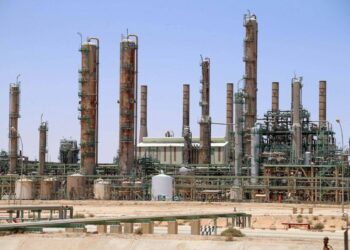By Emmanuel Nduka Obisue
The United Kingdom’s Foreign, Commonwealth and Development Office (FCDO) has issued a new travel advisory warning its citizens against visiting parts of Nigeria, citing worsening insecurity, terrorism, kidnappings, and violent crime across multiple regions.
In its latest Foreign Travel Advice published on GOV.UK, the FCDO stated that “insecurity is increasing across Nigeria. Kidnapping, violent crime, and intercommunal violence occur throughout all regions of the country”.
The advisory urged British nationals in Nigeria to exercise extreme caution, review personal safety procedures, and ensure they have contingency plans in place.
The FCDO specifically warned against all travel to Borno, Yobe, Adamawa, Gombe, Katsina, and Zamfara states, citing a “high and increasing threat from Boko Haram or Islamic State West Africa Province (ISWAP), particularly around transport hubs, religious areas, and large gatherings”.
It added that “humanitarian personnel, vehicles, supplies, and infrastructure may be targeted by terrorists and criminal groups”.
The UK government also advised against all but essential travel to Bauchi, Kaduna, Kano, Kebbi, Jigawa, Sokoto, Niger, Kogi, Plateau, and Taraba states, as well as the outer suburbs of Abuja within the Federal Capital Territory (FCT).
According to the advisory, “violent crime, often involving firearms, has increased and spread from the outer suburbs to more central, wealthier areas of Abuja”. British government staff have therefore been instructed to restrict their movements to areas within the Abuja metropolitan zone.
The FCDO further warned that protests in Abuja can sometimes turn violent. It stated, “Monitor local media, avoid demonstrations and large gatherings, and follow instructions from local police and security forces”.
A particularly alarming picture was painted of the North-East, where regular military operations continue in Adamawa, Borno, and Yobe states, and where “there remains a risk of retaliatory attacks”. Those in Maiduguri were cautioned that “if security were to deteriorate further, it could be extremely difficult to leave the city”.
In the South-East and South-South, the UK warned against travel to “the riverine areas of Delta, Bayelsa, Rivers, Akwa Ibom, and Cross River states,” noting that militant groups remain active and have carried out numerous attacks on oil and gas facilities.
“There is a high risk of armed robbery, criminality, and kidnapping in the Niger Delta region,” the FCDO added.
The advisory also raised concern about secessionist activity in the South-East, where “attacks and violent clashes often occur between separatist groups and security forces.” Although foreign nationals are not usually targeted, the FCDO cautioned that “there is a risk of being caught in an attack”.
In the South-West, including Lagos, the government described violent crimes such as mugging, car-jacking, kidnapping, and armed robbery as “common, particularly in larger cities”. While large-scale terrorist attacks are rare, the FCDO recalled that “Islamic State West Africa claimed two attacks in 2022,” though none targeted foreign nationals.
Travellers were urged to “be cautious when moving around Lagos, especially on the mainland,” and to “avoid travelling at night”.
The advisory concluded by urging anyone in high-risk areas to “stay alert, follow security advice from hotels, employers, or hosts, and keep safety procedures and contingency plans up to date”.
Nigeria continues to grapple with widespread security challenges, including terrorism, banditry, separatist agitations, and communal conflicts.
The Boko Haram insurgency, which began in 2009 in the North-East, has displaced millions and remains a major humanitarian crisis. Despite military offensives, splinter groups like ISWAP continue to launch deadly attacks targeting civilians, soldiers, and aid workers, particularly in Borno, Yobe, and Adamawa states.
In the North-West and parts of the North-Central, criminal gangs, commonly referred to as bandits, have expanded operations, engaging in mass abductions, extortion, and cattle rustling.
Meanwhile, separatist movements in the South-East continue to fuel violence and disruptions, while the Niger Delta and South-South regions, though calmer than in previous years, remain volatile due to oil-related militancy, pipeline vandalism, and criminal activities.




































